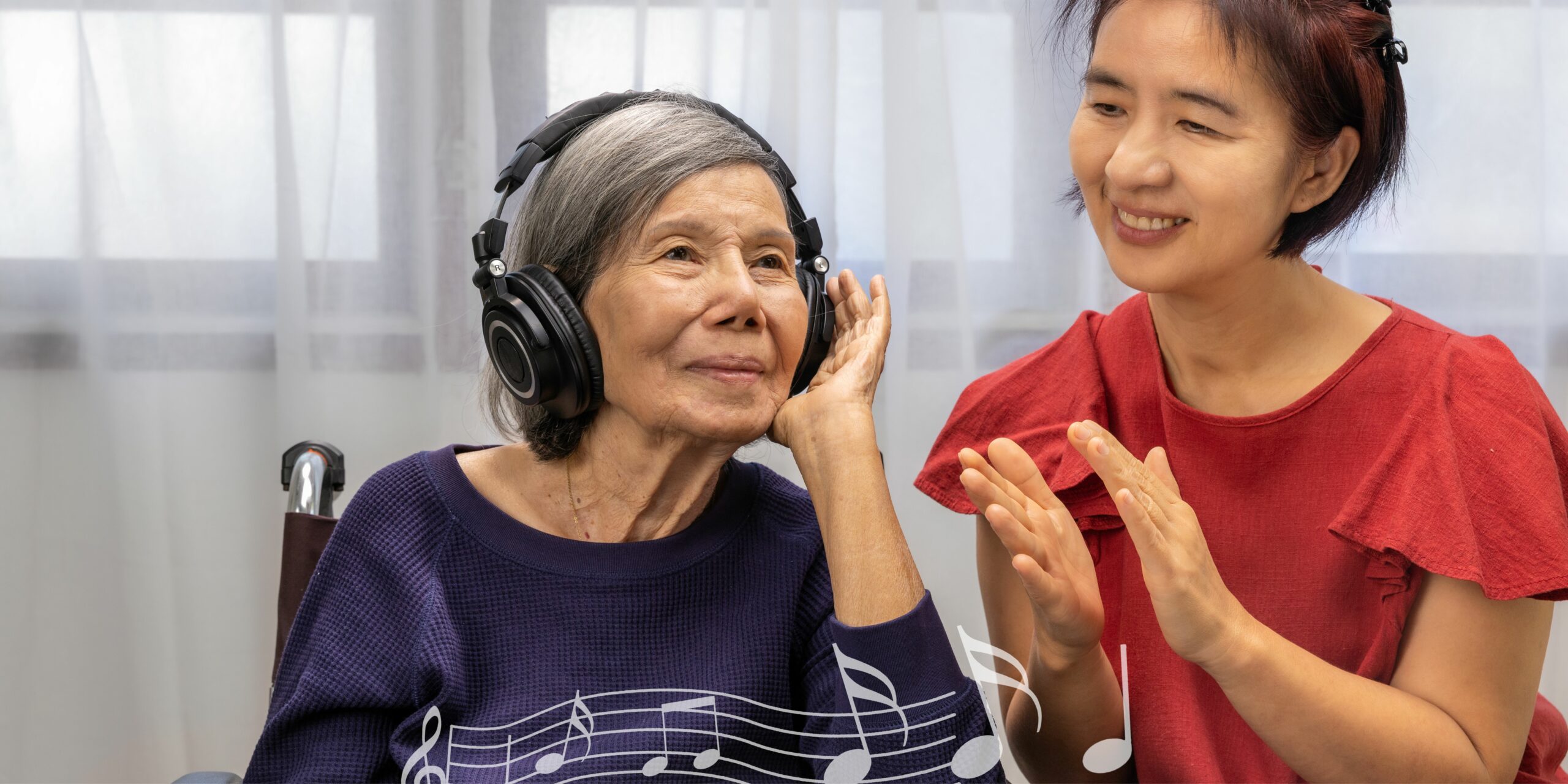
Parkinson’s and Music Therapy
Recent studies in neuroscience have unveiled the astonishing power of music therapy and music and rhythm based activities to improve communication in Parkinson’s, offering a ray of hope to those affected by the condition. Living with Parkinson’s Disease (PD) can be a challenging journey.
The neurological condition, characterized by the gradual loss of control over movement, often brings with it a host of other difficulties, including communication problems and also swallowing difficulty. However, in the midst of this struggle, there is a remarkable ally: music.
Dopamine and the Feel-Good Factor
In the realm of Parkinson’s research, dopamine takes center stage. This neurotransmitter is significantly reduced in individuals with Parkinson’s, contributing to the motor and non-motor symptoms of the disease. But here’s where music therapy works its magic.
Studies have shown that music has the ability to stimulate the production of dopamine in the brain. When we listen to or play music, our brain undergoes a remarkable transformation. Not only does it change structurally, but it also triggers an emotional response that leads to the release of dopamine, often referred to as the feel-good neurotransmitter.
This chemical messenger plays a crucial role in carrying information between neurons, and its boost can have a profound impact on individuals with Parkinson’s.
Moreover, music therapy and music based activities have been found to decrease the production of cortisol, a stress-inducing hormone, and increase the production of immune system-enhancing cells, effectively helping to fend off viruses. These biological effects of music alone make it a powerful tool in the battle against Parkinson’s.
Tremor Control
One of the most challenging aspects of Parkinson’s is the occurrence of involuntary movements, known as dyskinesia. These movements can disrupt daily life, impede relaxation, and even interfere with sleep. However, slow rhythmic music has the remarkable ability to slow down overactive body rhythms, inducing a sense of relaxation and promoting better sleep quality. It’s a simple yet effective way to regain control over one’s body and peace of mind.
The Foundation of Communication
Music is often described as the universal language, and it’s a concept that holds immense value for speech therapists and music therapists. In the realm of communication, music takes on a transformative role. For instance, Melodic Intonation Therapy, employed by speech-language pathologists, incorporates musical elements into speech therapy to enhance language production. This technique has been instrumental in the rehabilitation of individuals with speech production disorders, including those with Parkinson’s.
Mental Health Benefits Galore
Beyond its role in communication, music offers an array of mental health benefits. It serves as exercise for the brain, body, and voice. Singing, for example, encourages breath control, strengthens vocal muscles, and improves voice quality. It also enhances laryngeal movement and aids in controlling fluency and pacing of speech.
Improvements in Cognition
Moreover, singing lyrics can be a powerful memory aid. Music-based cues help with recall, focus, recognition, and attention span. The rhythmic element of music amplifies the connection between listening and movement, improving step length, coordination, balance, and posture. It becomes a template for organizing a series of movements and helps combat cognitive issues that affect movement function.
Rhythmic Auditory Cueing: A Game-Changer
One groundbreaking technique is rhythmic auditory cueing, where rhythm is used to facilitate movement and improve gait. Many people with Parkinson’s find that moving or walking to a rhythm significantly enhances their mobility. Music provides the rhythmic structure needed to coordinate both physical movement and voice/speech movement, making it a versatile and invaluable tool.
Making Music a Therapeutic Part of Your Parkinson’s Journey
Incorporating music into your daily routine can be surprisingly simple and incredibly rewarding. Here are some suggestions to get started:
- Sing in the shower.
- Listen to relaxing music. Try this dopamine boosting music playlist.
- Participate in music & rhythm based voice exercise classes
- Walk or move to the beat of your favorite songs.
- Clap or tap along with the music.
- Join a Parkinson’s choir or singing group
- Sing along to music in your car or while doing household chores.
- Bond with loved ones, especially grandchildren, by playing simple instruments or singing fun songs together.
The Transformative Gift of Music
The magic of music therapy in improving communication in Parkinson’s is a testament to the incredible power of art and science coming together. As individuals and researchers continue to explore the boundless potential of music therapy, those affected by Parkinson’s can find new hope, enhanced communication, and a path toward a better quality of life through the transformative gift of music. 🎵🤗
